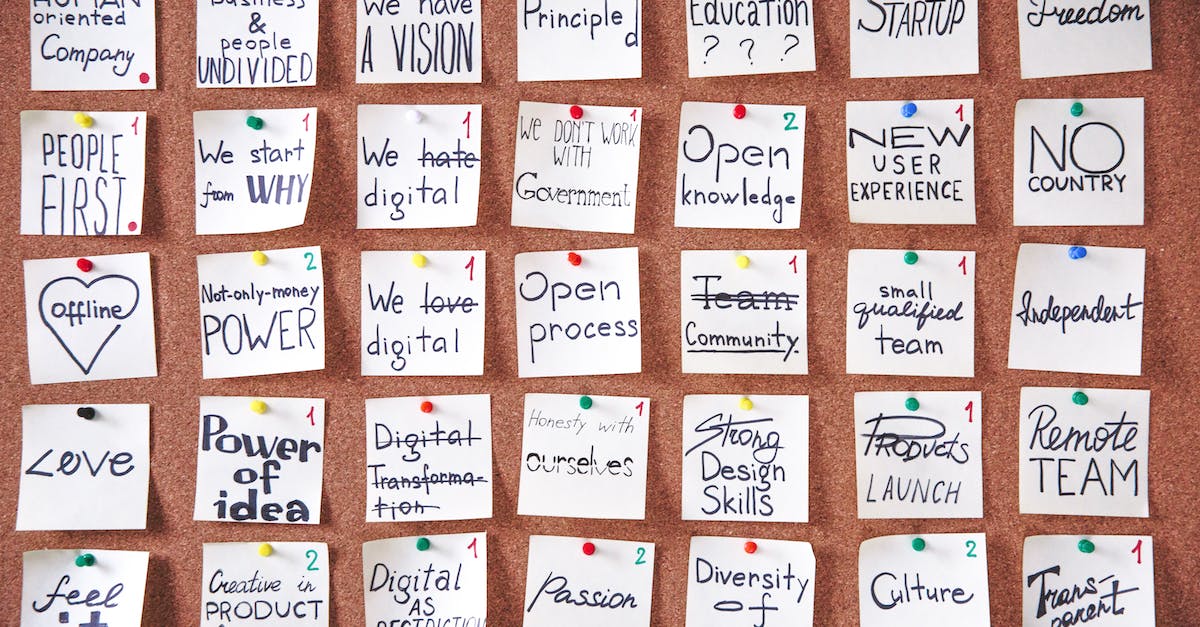Ever wondered what drives a society forward? It’s the collective aspirations known as societal goals. These are the benchmarks that communities set to achieve progress and well-being for all members.
From reducing poverty to ensuring quality education for every child, societal goals shape the policies and initiatives that govern your daily life. They’re the heartbeat of social development, pushing us towards a more equitable and sustainable future.
Understanding these goals gives you insight into the direction your community and nation are heading. Let’s dive into what these objectives entail and why they’re crucial for societal advancement.
What Are Societal Goals?
Societal goals are the collective aims shared by members of a community or society, aimed at improving the quality of life for everyone. These are not just lofty aspirations but form the roadmap for systemic change and progress. These objectives often include facets such as public health, education, economic prosperity, and environmental sustainability. They represent the collective consciousness of a society’s desires for a better future.
You’ll often see societal goals reflected in public policies and social movements. Governments and organizations design strategies and programs to address these goals, focusing on long-term benefits rather than short-term gains. By engaging with these societal ambitions, policies and initiatives become more aligned with the public’s interests, leading to a more harmonious and progressive society.
- Public Health: Ensuring all citizens have access to healthcare and are protected from health crises.
- Education: Providing quality education to develop skilled and informed citizens.
- Economic Prosperity: Creating a stable and robust economy that benefits all layers of society.
- Environmental Sustainability: Protecting natural resources and ensuring a healthy planet for future generations.
The pursuit of societal goals is a dynamic process that evolves with time and technological advancement. As society’s needs and values shift, so too do the goals. For example, the rise of digital technology has introduced objectives like ensuring cybersecurity and digital literacy for all.
By understanding these societal goals, you gain a deeper comprehension of your community’s priorities and can contribute more effectively to the discourse and actions that shape your shared future. Embracing societal goals helps create a synergy between individual actions and the larger vision of society, fostering an environment where collaborative efforts thrive and yield meaningful change.
The Importance of Societal Goals
Imagine a world where every individual’s efforts contribute to a greater good; societal goals make this possible. Public health stands as a testament to shared objectives shaping a healthier community. By prioritizing vaccinations and disease prevention, you’re not just shielding yourself, but you’re also establishing a shield for society.
Education, another pivotal societal goal, equips you with knowledge and skills, but it’s more than personal enlightenment. A well-educated society fosters innovation and critical thinking, driving the economy forward and creating a populace ready for future challenges.
Let’s talk numbers: an educated society often correlates with higher economic prosperity.
| Description | Correlation Factor |
|---|---|
| Higher Educational Attainment | Strong |
| Greater Economic Growth | Moderate to Strong |
| Increased Civic Engagement | Moderate |
Economic prosperity isn’t just about the wealth of nations; it’s about reducing inequalities and providing opportunities for all. When you’re in a thriving economic environment, your quality of life improves, and accessible resources multiply.
Lastly, environmental sustainability is a goal that echoes longevity. It’s not only about protecting forests and oceans; it’s about ensuring that future generations have a planet to call home. Every choice you make, from conserving water to opting for renewable energy sources, ties into the larger societal aim of sustainability.
- Public health initiatives lead to a robust community.
- Education fuels socioeconomic growth.
- Economic prosperity hinges on collective productivity and equitable distribution.
- Sustainability protects our planet for future generations.
In essence, you’re part of a mosaic where every individual’s actions affect the whole picture. Understanding and engaging with societal goals empowers you to enact change, fostering a symbiosis between personal success and the well-being of your community. Each step you take, mindful of these broad objectives, propels us toward a society where prosperity is shared and sustainable, where education is universal, and where health is a collective triumph.
Examples of Societal Goals
When considering the broader picture of societal goals, a range of examples come to mind. These are not just aspirations but are benchmarks that help gauge the success and cohesion of a community.
Public Health Initiatives have always been at the forefront of societal goals. They include vaccination programs, disease prevention strategies, and the promotion of healthy lifestyles. By investing in public health, you help decrease morbidity and mortality rates, creating a society where everyone has the chance to lead a healthy life.
Education Systems that are accessible and equitable form another pillar of societal goals. Education empowers individuals with knowledge and skills, but it also fuels innovation and economic growth. Initiatives may include improving literacy rates, promoting STEM fields, and ensuring inclusive education for people with disabilities.
Economic Prosperity and Equality are intertwined as societal goals. A strong economy is a backbone for societal wellness, supporting everything from infrastructure to public services. At the same time, efforts to diminish income inequality ensure that all members feel the benefits of a thriving economy, not just a select few.
Environmental Sustainability is a more recent, yet vital, inclusion. With the heightened awareness of climate change and its impact, goals such as reducing carbon emissions, conserving biodiversity, and promoting sustainable agriculture become crucial. These efforts ensure that future generations inherit a planet that is both livable and prosperous.
Remember, setting goals is only the beginning. Achieving them requires collaborative effort, sound policies, and continuous evaluation. Each step taken towards these fundamental societal goals brings you closer to creating a world where prosperity is a shared asset and sustainability is the norm.
Setting and Achieving Societal Goals
Setting societal goals is a strategic process that involves pinpointing which areas of society need the most attention and improvement. Imagine you’re at the steering wheel, navigating the collective journey towards a more prosperous, educated, and healthy community. It’s your responsibility to lay down the roadmap that balances ambitious targets with realistic expectations. Public participation plays a critical role here, ensuring that the goals resonate with the community’s actual needs and aspirations.
Once the goals are set, it’s time to shift your focus to achieving them. This isn’t a one-person job but requires a synergistic relationship between government bodies, private sectors, non-profits, and citizens. Each player brings unique resources and perspectives to the table, contributing to comprehensive and multi-dimensional strategies. Effective policies and programs tailored for your community emerge from this collaboration.
Metrics are your compass on this voyage. You’ll need to measure progress with relevant and timely data to steer the course. Regular assessment using key performance indicators keeps everyone accountable and focused. It’s not just about hitting benchmarks but also about reflecting on the impact and refining the approach as you go.
Harnessing technology and innovation can propel societal goals forward at an unprecedented pace. Digital platforms can enhance education reach, telemedicine can bridge healthcare gaps, and green tech can drive toward environmental sustainability. Staying adaptable and receptive to new solutions will keep your strategies fresh and effective.
Remember, the process of achieving societal goals is iterative and ongoing. It’s all about making continuous improvements and adjustments, ensuring that the sails are always catching the wind of change for a better society.
The Impact of Societal Goals on Communities
When your community sets collective goals, the impact can be profound and multifaceted. Societal goals have the power to strengthen local economies, improve public health, and increase educational opportunities. It’s essential to understand how these changes can positively transform your neighborhood, your city, and even your country.
Economic Growth and Employment often receive a significant boost as societal goals frequently focus on job creation and economic stability. This, in turn, can lead to a reduction in poverty rates and an overall higher standard of living. Goals centered around technology and innovation can foster new businesses, drawing investments and encouraging entrepreneurship.
Health and Environment objectives are just as critical, aiming to improve the quality of life by ensuring access to healthcare and promoting a clean and sustainable environment. These goals can decrease the rate of disease, extend lifespans, and mitigate the impact of climate change, thereby saving countless lives and preserving the ecosystem for future generations.
Education and Skill Development are frequently at the core of societal ambitions, equipping individuals with the knowledge and skills necessary to drive progress. By placing an emphasis on learning and personal development, communities witness improved job markets and greater innovations.
| Benefits | Description |
|---|---|
| Economic Stability | Drives business growth and leads to more job opportunities. |
| Healthier Lives | Access to healthcare and a cleaner environment. |
| Quality Education | Fosters innovation and better career prospects. |
Societal goals also play a crucial role in promoting Social Inclusion and Equality. The active pursuit of these objectives ensures all community members have access to the resources and opportunities they need to thrive. As you work together towards these common aims, you’ll notice a more cohesive and harmonious society.
Remember, the true force behind aiming for and hitting the mark on these societal goals lies in collective action and shared responsibility. It’s the ongoing commitment that propels communities towards a brighter and more sustainable future.
Conclusion
You’ve seen how societal goals can reshape communities, bolstering economies, health, and education while fostering inclusion and equality. Remember, these goals aren’t just lofty ideals; they’re achievable benchmarks that pave the way for a sustainable future. It’s your collective action and shared responsibility that will drive this change. As you move forward, carry the insights from this discussion to inspire and guide your contributions to the society you’re a part of. Let’s work together to turn these visions into realities.


Leave a Reply